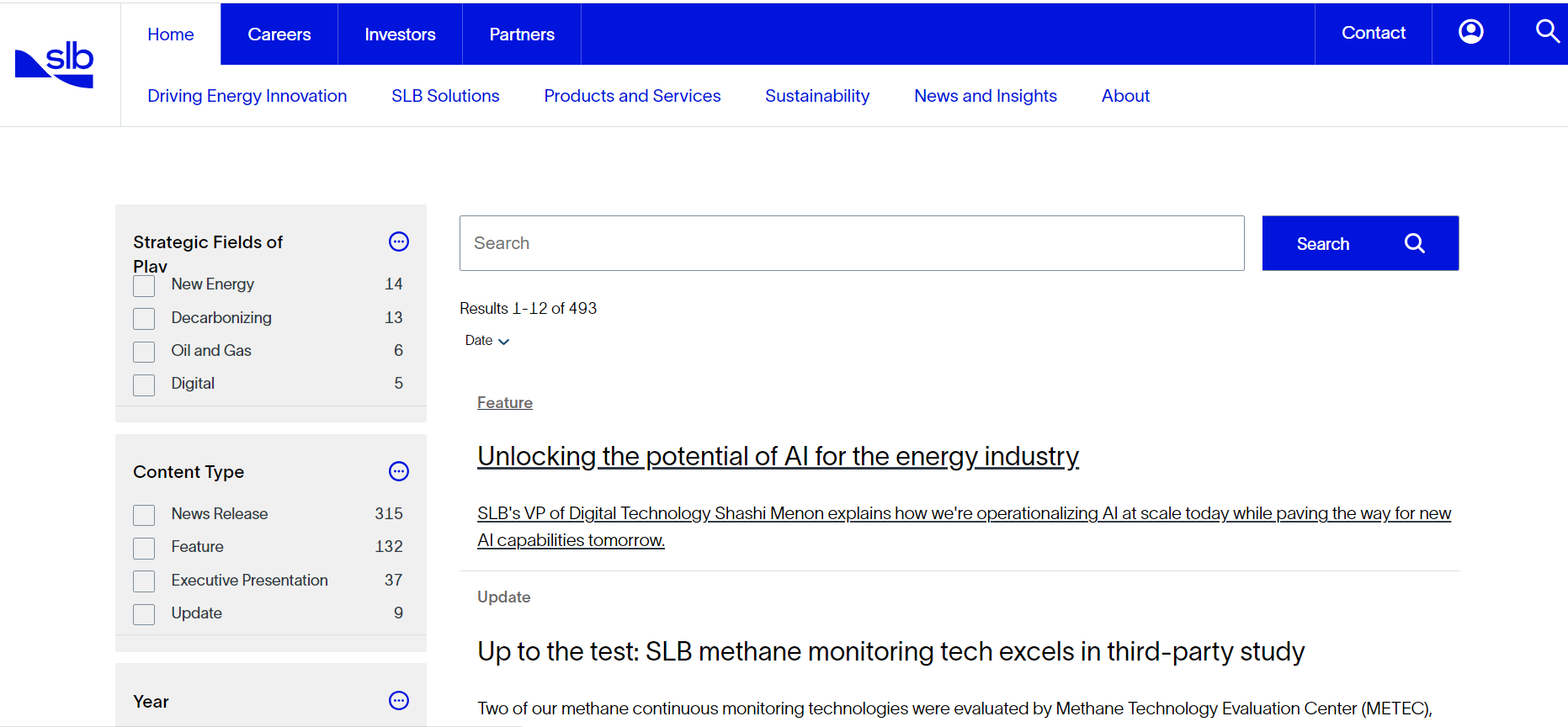In the energy sector, a new paradigm unfolds, driven by an ardent commitment to embrace sustainable innovations for a cleaner and more liberated future. From adopting new renewable sources of energy to developing automated technology and integrating systems, the goal is to create a sustainable ecosystem that reduces the impact of human footprint.
For this reason, there has been an increasing need for energy companies to adopt knowledge management software to document processes and ease knowledge sharing among employees. Doing this can cut down on valuable time spent on solving issues.
Nevertheless, adopting knowledge management software comes with numerous barriers. Hence, how can energy industry stakeholders overcome these barriers and tap into the immense benefits of knowledge management? What needs to be put in place? Keep reading to discover the answers.
Overview of Knowledge Management in the Energy Industry
One fact that makes knowledge management necessary in the energy industry is how instrumental it is to sharing knowledge and using this to implement innovative ideas. Knowledge management is also the window to better decision-making processes and efficiency in operational tasks.
However, the energy sector has other mini industries like renewable energy and oil and gas. These sectors have their unique challenges but this is accompanied by windows of opportunity in knowledge management.
Based on historical data, many organizations in the oil industry are leaders in the practice of knowledge management. At the same time, some still need to tap into the opportunities available in explicit knowledge management.
This necessitates the need for more awareness and understanding of knowledge management in the energy industry. Doing this will help organizations optimize their processes by effectively capturing and organizing explicit knowledge while fostering collaboration among employees to enable them to tap into tacit knowledge.
The good news is that a few companies in the energy industry have come up with diverse methods to take advantage of tacit knowledge among their employees. More than a few of them have established training and development programs to help transfer this knowledge.
Current State of Knowledge Management in the Energy Sector
Currently, knowledge management in the energy industry shows healthy strides and the need for improvement as well. Knowledge management is not as unknown as it was more than a decade ago. Today, organizations are making deliberate efforts to implement knowledge management strategies and talk about them through academic studies. These reports also highlight the importance of prioritizing knowledge management while emphasizing the need to integrate knowledge management practices with better use of literature. Still, there are a few gaps organizations need to plug in.
First is the need for organizations to adopt innovative knowledge-sharing platforms to encourage a culture of collaboration among employees. The energy industry is experiencing several upgrades, and we can catch up by exploring how emerging technologies can be useful in this field. Consider how effective data analytics, machine learning, and artificial intelligence can be in predicting customers, making effective decisions, and improving knowledge discovery. Integrating an AI tool like ChatGPT in knowledge management can make extracting information from vast amounts of data faster and more seamless. Let’s not forget the challenges of knowledge retention and transfer that the energy industry has faced over the last few years. With better strategies, this industry should be able to transfer important information across several strata of employees.
Challenges in Adopting Knowledge Management in the Energy Industry
Lack of Awareness and Understanding
Despite significant efforts that have been made towards implementing key knowledge management practices over several decades, the energy industry still needs to gain critical awareness and understanding of adopting knowledge management in the energy industry. Many organizations still need to be made aware of the benefits this poses to the effectiveness of their operations and may require the necessary understanding of its principles.
Combating this challenge would require intensive awareness campaigns within organizations where employees would be trained on the purpose and benefits of knowledge management. These can be through various communication channels, including workshops and training programs. Another method involves highlighting successful knowledge management initiatives that have been helpful within the energy industry to boost innovation and efficiency. Sharing case studies will increase interest in the principles and practices of knowledge management.
Cultural Resistance
Unfortunately, adopting knowledge management practices is not welcomed in the energy industry. These refer to the poor knowledge-sharing culture within establishments and deliberate knowledge hoarding that hinders the effective implementation of knowledge management in the energy industry. Cultural resistance can be mitigated in several vital ways. One is deliberately promoting a knowledge-sharing culture in the workplace by encouraging employees to adopt formal and informal channels for sharing their expertise. This will be more successful by rewarding knowledge-sharing behaviors while managers actively demonstrate the importance of sharing expertise by promoting a culture of collaboration and openness.
Technology Challenges
Although they may have begun the trajectory toward adopting knowledge management in the energy industry, it’s not without its challenges. It still needs to overcome severe technology challenges due to difficulties integrating knowledge management systems with their existing complicated workflows, the limited availability of IT resources, and outdated systems. These can be corrected through investments in valuable knowledge management tools, such as knowledge management software that seamlessly aligns with organizational objectives and integrates with existing systems. Effective technology adoption includes using user feedback, conducting thorough assessments, and collaborating with IT teams to choose suitable systems.
Resistance to Change
It’s not rare for employees and critical stakeholders within the energy industry to be reluctant to adopt new tools and processes in their workflow. They would rather stick to outdated traditional methods while resisting changes like technology adoption. While this can be difficult to combat, organizations can experience measured changes when they communicate the benefits of knowledge management in the energy industry to their employees. They can highlight how helpful this will be to their personal growth and work processes, saving critical time and effort. Employees should also be integrated into the process through continuous improvement opportunities and encouraging participation in knowledge management.
Lack of Metrics and Demonstrable ROI
Another factor hindering knowledge management adoption in the energy industry is the need for metrics and demonstrable ROI within this sector. Evaluating the effectiveness of knowledge management initiatives is challenging when there are no clear metrics to measure improvements. Overcoming this challenge starts with identifying relevant key performance indicators (KPIs) aligned with each organization’s objectives that will boost operational efficiency and collaboration through knowledge management. Appropriate systems can also be implemented to capture and analyze data to measure the effects of knowledge management.
Schedule a demo with one of our experts to take a deeper dive into Document360
Book A Demo
Benefits of Knowledge Management Adoption in the Energy Industry
Managing the energy industry’s complexities requires an effective knowledge management system that documents everything; it’s a source of truth for employees, departments, and stakeholders to reference and make informed decisions concerning changing conditions. Other benefits of adopting knowledge management in the energy industry include:
Capturing and Preserving Knowledge
One of the most significant benefits of knowledge management adoption in the energy industry is the facilitation of capturing and preserving knowledge within this sector. This applies to both explicit and tacit knowledge.
In this scenario, explicit knowledge encompasses technical specifications and documented procedures stored in knowledge databases and repositories. Therefore, explicit knowledge can be captured correctly in the energy industry by developing a centralized repository containing up-to-date safety guidelines and technical manuals that can be easily accessed.
Tacit knowledge through the sharing of experience and expertise by high-level employees can also be preserved through mentorship programs and collaborative platforms where these experienced engineers share vital insights to help with problem-solving approaches.
Enhanced Collaboration and Knowledge Sharing among Employees
Implementing knowledge management practices within the energy industry can enhance employee collaboration and knowledge sharing. Employees can collaborate, share information, and connect with the right knowledge management platform. This further boosts innovation and, due to time-saving, increases the operational efficiency of employees. Enhanced collaboration can be possible through the creation of communities of practice across specific domains in the energy sector. Employees can then collectively discuss challenges and find solutions seamlessly.
Improved Decision-Making Processes based on Access to Relevant Information
Adopting knowledge management in the energy industry can result in improved decision-making processes. This is possible as there is better access to relevant information through content-rich databases that catalog all potential challenges during the workflow. With this, decision-makers can always access up-to-date, contextually relevant, and accurate information critical for making informed decisions. Data can be accessed through knowledge directories categorized by subject matter experts within the organization and made openly available to anyone seeking guidance.
Facilitated Innovation and Continuous Learning within Organizations
Innovation is necessary for constant improvement within the energy industry. Knowledge management facilitates this by encouraging innovation and continuous learning within organizations. Providing platforms and processes for sharing knowledge makes this the right tool to foster a culture that promotes continuous learning among employees and innovation. This can be through channels for submitting and discussing innovative ideas among employees and new methods of exploring technology.
Increased Operational Efficiency and Cost Reduction
Knowledge management also presents the fantastic benefits of increased operational efficiency and cost reduction. When less time is spent solving problems, especially those that have been solved previously by experts and carefully recorded within knowledge repositories, this leaves valuable time for other tasks.
Organizations in the energy industry can streamline processes and reduce the chances of errors by leveraging existing best practices in knowledge management. There is a better chance of efficiency and consistency across workflows when standard operating procedures and best practices within the company are documented and easily shared. This improves problem-solving by reducing downtime and encouraging experts to share their knowledge.
Overcoming Barriers to Knowledge Management Adoption in the Energy Industry
Developing a Strategic Plan for Overcoming Barriers
Companies in the energy industry need a strategic plan to help improve knowledge management adoption. This strategic plan should address unique challenges within this sector and promote an inclusive knowledge-sharing environment. Key elements of the strategic plan include a thorough assessment of the organization’s current barriers to knowledge management adoption. Companies can understand areas to drive more effort and improve knowledge sharing among employees by assessing these barriers, like cultural resistance and a lack of awareness.
After this assessment, the organization can develop a comprehensive strategy to create more awareness about knowledge management and its benefits. By promoting the importance of its adoption, employees, and leaders can become more inclined to participate as they understand its value. Other aspects of the strategic plan include:
1. The provision of training programs and resources.
2. Eliminating unnecessary steps that can disrupt knowledge management integration into their workflow.
3. Establishing key metrics to measure the effectiveness of knowledge management.
Identifying Enablers and Drivers for Successful Implementation
This is another effective way to overcome barriers to knowledge management adoption in the energy industry. These enablers and drivers can be leaders and managers who can champion knowledge management initiatives that inspire others to participate actively.
Never underestimate the power of leading by example. Managers and more experienced employees can integrate knowledge management into decision-making processes and encourage knowledge sharing company-wide. Knowledge management also thrives in an environment that fosters a culture that values continuous learning and collaboration.
You can encourage this by creating a space where employees are comfortable sharing knowledge, and there’s an air of open communication. Organizations can also build communities of practice for each subdomain within the energy industry where employees can seek advice from each other, connect, and solve problems. Boost this further by leveraging technology solutions to support knowledge management efforts and make this more efficient.
Examples of Knowledge Management in the Energy Industry
Let’s look at some examples to inspire you to create your knowledge-based management system.
Schlumberger
This energy company is one of the first to adopt knowledge management technology into its organization. According to a former executive, they implemented this program within the drilling division of the company, effectively transforming this subdomain into a high-performing one where experts and field personnel could easily share information. This has helped to boost organizational efficiency, translating to better services for their diverse clientele.
Schlumberger’s knowledge base is designed to be easily accessible and searched. The content can be filtered by topic, section, product, location, or resource type. So, say, for example, a sales member is speaking to a prospect; they can easily look up a relevant case study to win the prospect over.

BP
This global company is another major player in the energy sector that has tapped into the numerous benefits of knowledge management processes. Over time, they have developed an easy mechanism for employees to transfer knowledge within themselves, effectively capturing and sharing tacit knowledge within the organization. Therefore, employees have leveraged this knowledge to streamline processes and improve productivity.
The knowledge base management at BP takes quite a different approach from the one implemented at Schlumberger. Instead of creating one pillar resource page that links to sub-pages, they have multiple pages for an image library, a video library, press releases, and lots more.

Shell Global (Dutch)
This leading energy company has a dedicated repository of knowledge that contains all relevant details about every department within the company. Therefore, this serves as a guide for employees who run into issues and would need timely answers from experts who have been in a similar situation.

Conclusion
Knowledge management can be seamless with access to the right tools. Document360 has helped numerous brands create a detailed knowledge base that integrates expertise from diverse contributors into one repository for access no matter where the users are. You can replicate that in your oil and gas company, making your employees more efficient.




 –
– 

